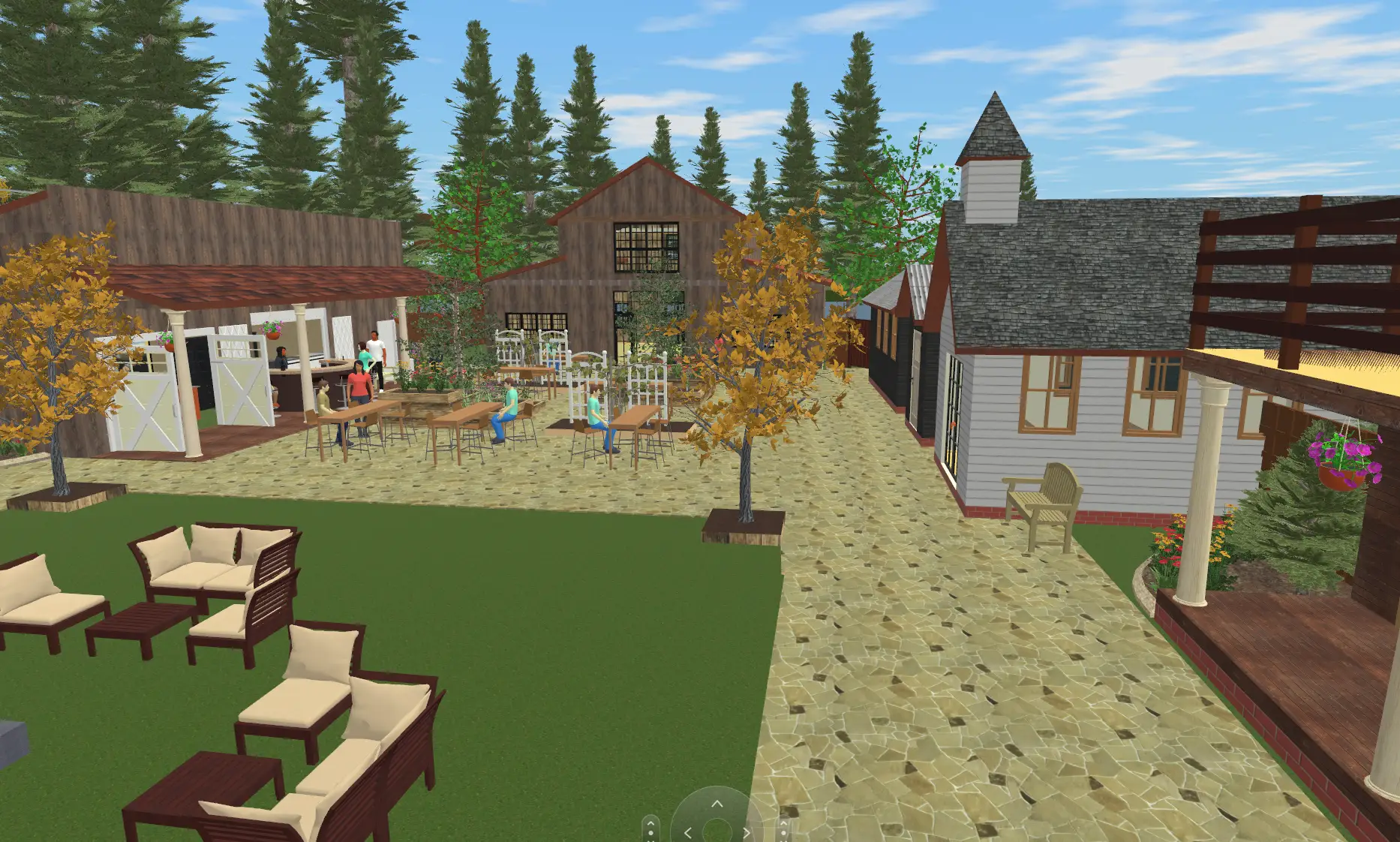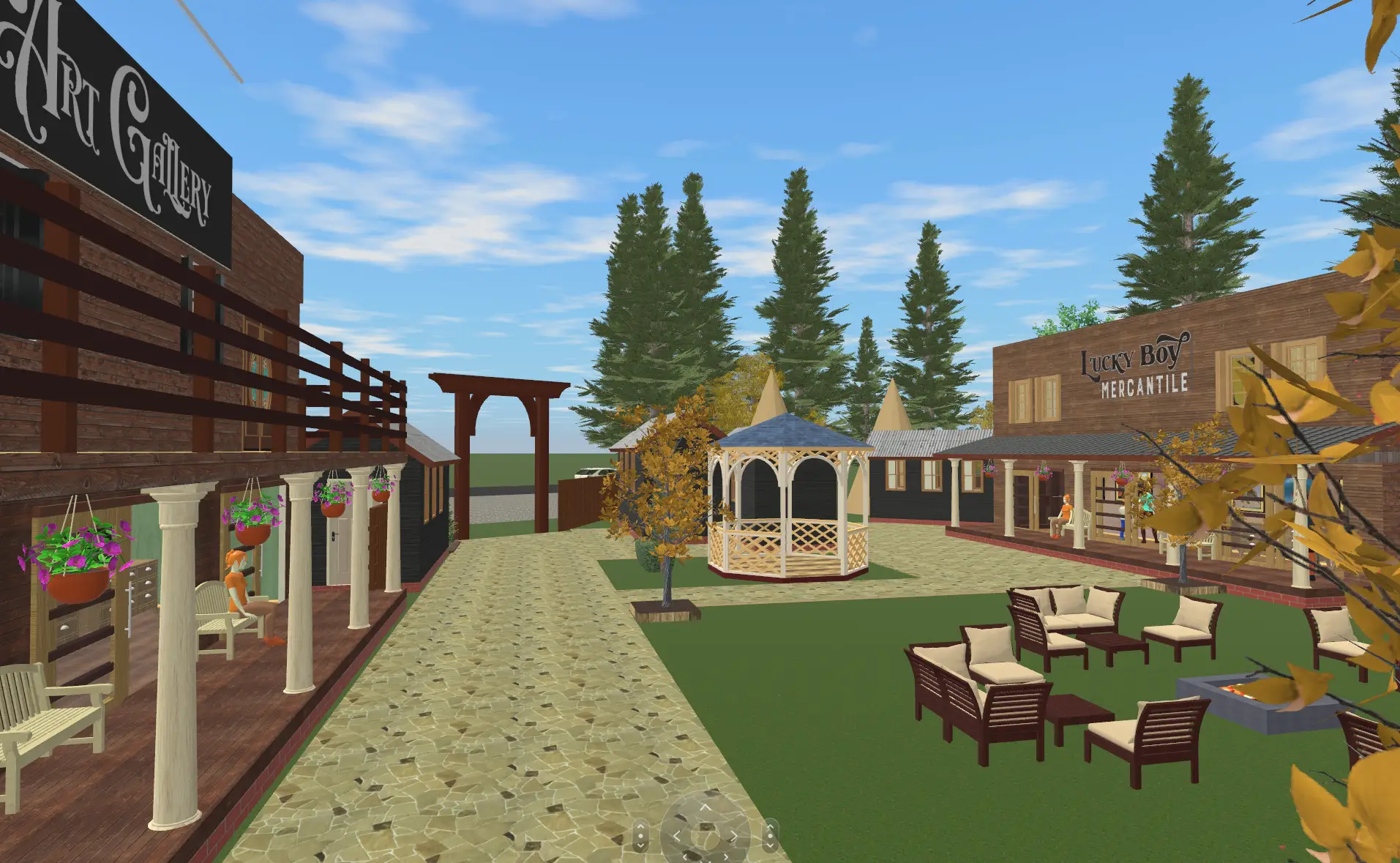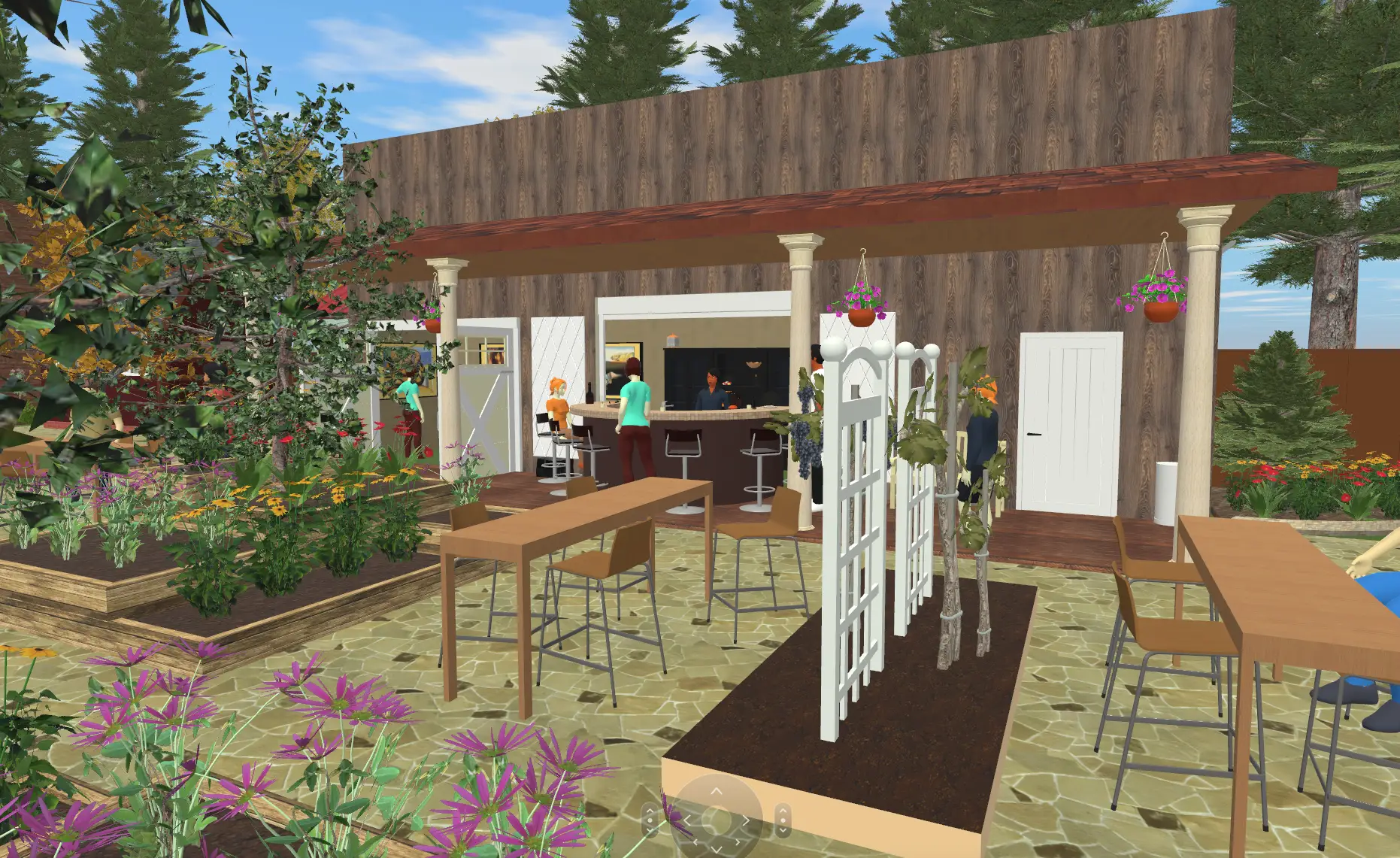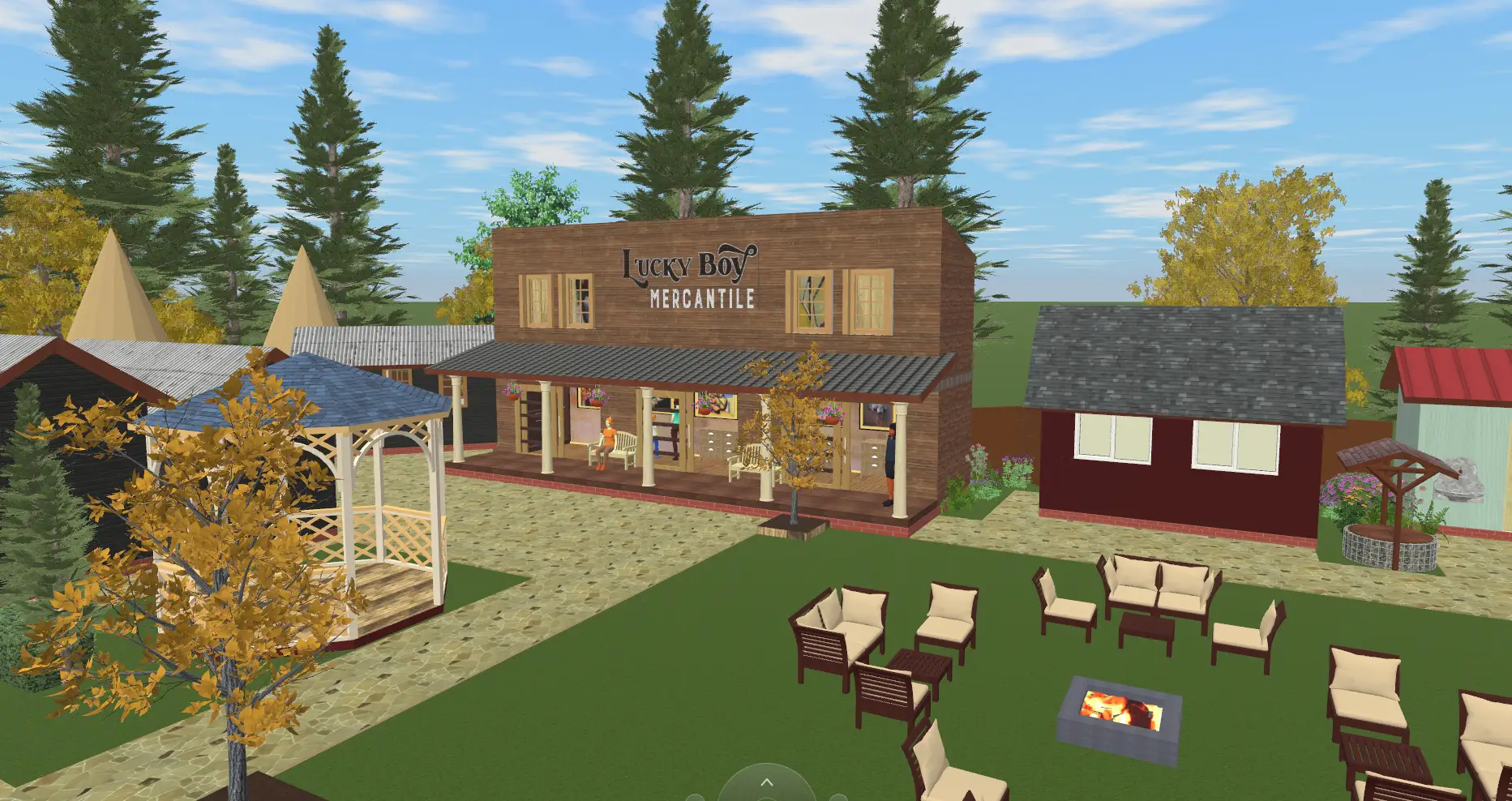Creating a Destination
Food, Entertainment, Art and Culture
It’s been over 3 years since the Holiday Farm Fire destroyed the town of Blue River, slowly things are progressing.
Executive Summary:
The Lucky Boy Mining Camp is a tiny business village of micro enterprises, small businesses, and pop up retail vendors composed of local entrepreneurs on the McKenzie River.
This facility will play a pivotal role in facilitating the reopening of local businesses that have struggled in the wake of Holiday Farm Fire.
We envision the creation of a vibrant and resilient community hub – a tiny business village – nestled in the heart of Blue River. This initiative seeks to not only revitalize the local rural economy but also to establish a compelling destination for tourists traveling through the region.
The Lucky Boy Mining Camp will serve as a dynamic space where visitors can shop, dine, and engage with the diverse array of local enterprises. By attracting tourists and providing them with unique experiences, we aim to stimulate economic growth and foster community resilience. Key objectives of the project include:
- Attracting Visitors: Our village aims to draw tourists from far away, positioning itself as a prime destination along the McKenzie River.
- Encouraging Recovery: By establishing a thriving commercial center, we aspire to inspire hope and resilience in the Blue River community, signaling progress in post-disaster recovery efforts.
- Supporting Education and Arts: The village will provide a platform for educational workshops and artistic performances, nurturing creativity and cultural enrichment for residents and visitors alike.
- Empowering Local Businesses: Through affordable retail spaces and increased exposure, we aim to strengthen and sustain local enterprises, enabling them to thrive in a competitive market.
- Enhancing Visitor Experiences: By offering a diverse range of culinary delights, unique products, and engaging activities, we aim to enrich the vacation experiences of visitors, encouraging them to extend their stay and contribute to the local economy.
- Building Community Pride: The village will become a source of pride for locals, showcasing the ingenuity and resilience of the Blue River community while fostering a sense of belonging and identity.
The Lucky Boy Mining Camp will not only provide economic opportunities for local entrepreneurs but also offer enriching experiences for residents and visitors alike.
The Problem: Blue River was the central retail and service hub for the area.
A vibrant Blue River is important to the entire upper McKenzie Community
Blue River Died
On Labor Day, 2020, the Holiday Farm Fire ravaged our communities, taking out hundreds of homes and businesses.
The town of Blue River was incinerated – turned to dust in a matter of hours.
Before the fire, the town was already struggling from a number of issues:
- Decades of land use laws designed to strangle rural Oregon,
- An economy moving away from timber harvesting
- Highway changes that bypassed the downtown businesses
Businesses have been lost. Scant resources had been made available for business recovery.
3 years later, there has been some rebuilding started with some homes and services like the post office, fire station, medical clinic and library. Only one other business has broken ground to rebuild.
This recovery project is designed to Help
- businesses reopen – especially those impacted by the fire.
- Provide more services and food options to the community
- Support Tourism in the region by providing much needed food, shopping and attraction options.
McKenzie Community Partnership is working to help small businesses recover.
Problem
New restaurants require a tremendous investment and also require the ability to handle a lot of sewage. This is a huge problem for our area.
- Septic Capacity is Limited
- Small town population and seasonal tourism means lower volume business
- Cost to build standard restaurant could easily hit $500 a sq ft.
Solution
Food Carts
- They are inexpensive to build
- Require few employees to operate
- Can operate seasonally
How To Make Food Carts Pop!
Provide a food cart pod with multiple carts, beautiful common outdoor and indoor dining space, restrooms and occasional entertainment.
Problem:
We have many talented artists who live along the river – yet there are limited spaces to display and sell their creations.
Solution:
Create an Art Gallery
We will invite artists to show their work in the gallery and have gallery galas – with wine and food
Create an Artist Co-Op
Artists may decide to create a micro store in our art store.
Art Events
In addition to the Gallery Events, we will be hosting hands on artist workshops.
Problem:
Most people aren’t aware of the history of the Native Americans that lived here before Europeans immigrated here.
Solution:
Work with local tribes to create an interpretive center to share the history and another reason to stop.
We are in the process of setting up these collaborations now.
Problem
Open up a traditional Brick and Mortar store is expensive for small and micro businesses
Solution:
Small pop up stores that businesses can open inexpensively and only during peak times.
A pod of shops creates more buzz than a single stand would.
Create weekend events that are like Saturday Market.
Some vendors can collaborate and create a co-op to support multiple vendors at an even lower cost.
The images shown are for inspiration. The sketches are concepts we created.
Community News, Events and Resources
We’ve created a database of resources for victims of the Holiday Farm Fire.
Keep up to date on local news, events and community support.

Lucky Boy Mining Camp
Lucky Boy Mining Camp is an outdoor community space for Blue River and the surrounding communities.
This content isn't available right now ... See MoreSee Less
This content isn't available right now
When this happens, it's usually because the owner only shared it with a small group of people, changed who can see it or it's been deleted.- likes 0
- Comments: 0
- Shares: 0
0 CommentsComment on Facebook
Here is a rendered version of the red barn image we posted earlier.
We are working on a new improved rendering of what the entire space might look like if we get PIER finding.
Your positive comments and shares will help us with the selection committee!
We are looking to create a space that the community will be proud of, provide food and shopping options for locals and be a destination place for our tourists (we want travelers to drop more funds to support our local economy).
... See MoreSee Less
9 CommentsComment on Facebook
Where’s the potential location?
Omg, i am so proud of whoever is behind this great idea. Cant wait to drive up there and see it. Is this at Blue River or McKenzie Bridge
Farmers market would be spectacular!!


The possibilities excite us! A Saturday market? Popup stores? Gathering space? Art Classes? Square Dancing?
What could you imagine happening in this space?
... See MoreSee Less
12 CommentsComment on Facebook


Find out how you can support the community with your time and expertise or by donating to help run community projects in the area.
Tiffany Lemmerz – #McKenzieStrong
#McKenzieStrong





